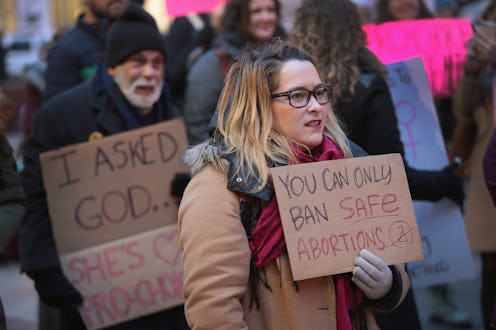News
The Global Gag Rule May Limit Contraception Access

Weeks ago, the White House announced it would be implementing the Global Gag Rule weeks ago as one of the first measures of the Trump administration. However, it was just last week that the first guidelines on the Global Gag Rule were released. Also known as the Mexico City Policy, the order affects the work of international family planning and health aid organizations by barring any U.S. funds from going to non-governmental organizations (NGOs) that provide abortions. This policy has been enacted by every Republican president since Ronald Reagan and subsequently repealed by each incoming Democrat.
Critics of the Global Gag Rule will argue that it provides an unnecessary financial penalization because, under the Helms Amendment, foreign aid already cannot be used to perform abortions. The Helms Amendment has been in place for over 40 years. The Global Gag Rule goes further by denying U.S. funds to foreign-based NGOs who perform abortions at all — even with their own privately raised money. It also denies U.S. funds if they offer abortion counseling, referrals or even literature on the subject, as well as advocating for abortion laws in foreign countries.
When Trump signed the executive order reinstating the rule in January, he indicated that not only family planning assistance funds would be restricted, but that it would extend to all global healthcare assistance funds. That brought the potentially affected funds from about $600 million, to more than $8 billion, according to Jonathan Rucks, director of advocacy at PAI, a global advocacy group focusing on women's and reproductive rights.
However, Trump's newly announced guidelines only mention the family planning funds at this time. Still, the door remains open to tack the Global Gag Rule onto other health funding, according to Rebecca Brown, director of global advocacy at the Center for Reproductive Rights.
"This is definitely new and something that the community is trying to react to, given that we've never seen the potential impact of something this significant before," Brown tells Bustle. "However we actually don't know yet the breadth of what this policy will look like, and I think we don't necessarily want to overreact before we know the full range of what funds will be impacted."
According to foreignassistance.gov, the United States has earmarked $620 million in family planning assistance aid for the 2017 fiscal year. The majority of the money goes to countries in Sub-Saharan Africa, with Nigeria, Ethiopia and Uganda receiving the most aid, with $37, $31.5 and $27.5 million allocated to each, respectively. A large portion of aid also goes to the region surrounding the Indian sub-continent, with India, Pakistan and Afghanistan all receiving substantial aid, and Bangladesh getting the most in the area, with $27 million.
"All evidence shows that restricting abortion does not actually reduce abortion rates. The only impact that it has is that it criminalizes women, it increases unsafe abortion."
According to Marie Stopes International, one of the largest family planning organizations in the world, in just four years of a Trump presidency, the world may see 6.5 million unintended pregnancies, 2.1 million unsafe abortions and almost 22,000 maternal deaths, all due to the reinstatement of the Global Gag Rule, and the loss of services that come with it.
In Uganda, access to emergency contraception was being restricted because church officials were saying that it was a method of abortion, which is not true."
"All evidence shows that restricting abortion does not actually reduce abortion rates. The only impact that it has is that it criminalizes women, it increases unsafe abortion, and it increases maternal mortality," Brown says. "What we've seen from 2003 and previously is that the only real impact is to undermine women's ability to control their lives and undermine their human rights"
Even for the organizations who choose to comply in order to keep funding, the gag rule's somewhat ambiguous wording can restrict them from even distributing contraceptives, according to Brown. She points to a 2003 report done by the Center for Reproductive Rights that found that in Uganda, access to emergency contraception was being restricted because church officials were saying that it was a method of abortion, which is not true.
"It causes a chilling effect on a full range of reproductive and sexual healthcare services even though it should just be abortion as a method of family planning," Brown says. "Within the global community, it has been established that women's right includes access to abortion. International human rights law does establish that this policy violates women's rights to heath and equality, their right to life, etc."
The Global Gag Rule has been condemned by many countries, and a number of European countries have begun to fight back against its impact.
Last week, a coalition of 50 countries convened at the She Decided conference in Brussels, and announced that they would support these NGOs. These countries have pledged to donate money to fill the void left by the United States, but it remains to be seen whether these countries will be able to fill the funding gap created by the Global Gag Rule. After all, the $620 million in family planning assistance that the United States donates annually accounts for the largest percentage of international family planning aid from a single country.
Nevertheless, the leaders seemed determined to dig in their heels and dig into their funds. “This should not be a moment where we are taking steps back into the dark ages," Belgium's deputy prime minister, Alexander De Croo, told the Associated Press.